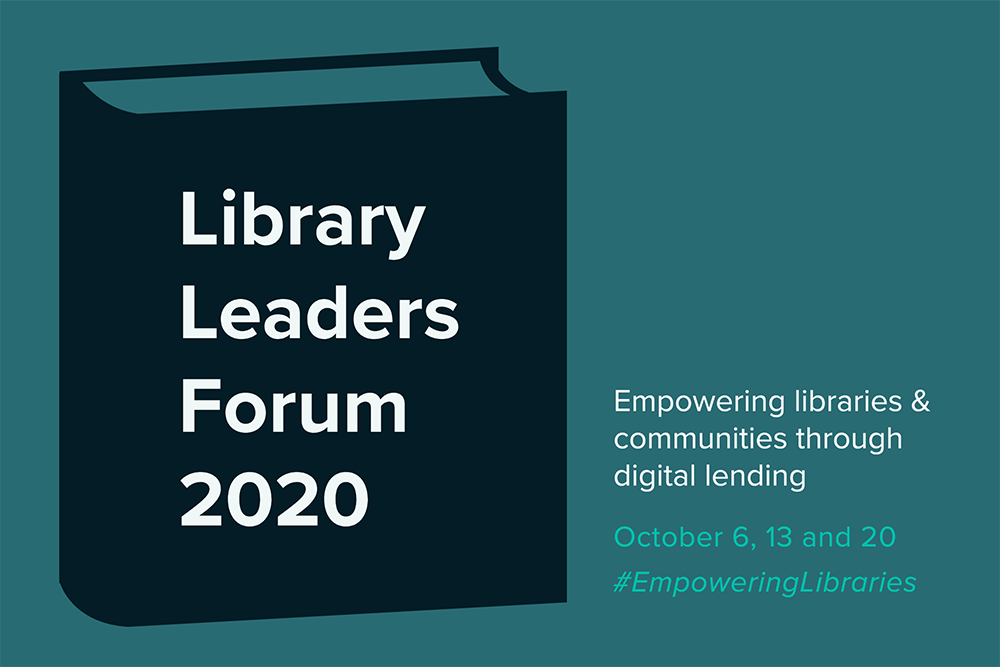
With library service impacted at global scale due to COVID-19, libraries have had to adjust their digital lending programs to meet the needs of the communities they serve. The crisis has proven the power and importance of digital tools in responding to crisis and empowering those who would otherwise be excluded from access to knowledge and education.
So where do we go from here? How can we harness the learnings from this extraordinary time to build the library of the 21st century? This October at the Library Leaders Forum, experts from the library, copyright, and information policy fields will come together for a three-week virtual event exploring the future of digital lending and its key role in a democratic society. Here are our three key discussion points:
Information policy in the digital age: how can we empower libraries?
Our first session will focus on policy: how can we build a healthy information ecosystem for the 21st Century? The COVID-19 pandemic has demonstrated that digital access to library materials is more important than ever, and that our current models are not adequate to meet this need. Digital access is particularly important for the most vulnerable people in our society, including disadvantaged communities, people with print disabilities, and those affected by emergency. Information policy, therefore, has wide-ranging implications for equality and the right to education. In this session, librarians, authors, and publishers will come together to discuss what’s broken, what’s working, and the future of information policy and practice.
What is the role of controlled digital lending in the library of the future?
Our second session explores the community of practice around controlled digital lending. The power of this key library practice in helping libraries and educators reach marginalized communities and respond to emergencies has been demonstrated during the COVID-19 period. There are now hundreds of libraries using the practice to reach their communities while service is disrupted. The potential of controlled digital lending for contributing to a more equal society where everyone has access to knowledge is clear; how can we expand on the current uses of this powerful tool? In this session, we’ll learn from librarians, educators, and technologists who are developing next-generation library tools that incorporate and build upon controlled digital lending.
How does controlled digital lending impact communities & librarians?
Libraries serve communities, and our tools are successful when they have a positive impact on people’s lives. Our final session will therefore focus on first-hand experiences of the impact of controlled digital lending. We’ll hear from libraries that have implemented the practice and from library users about what it has meant for them. We look forward to hearing from those on the frontlines of the COVID-19 response about how they are using digital library practices to adapt to the situation and continue to serve those who most need free access to digital materials.
Beyond the Forum: the #EmpoweringLibraries campaign
The issues raised at the Forum are not merely theoretical, but require urgent action in the face of a new lawsuit which threatens the practice of controlled digital lending and the age-old role of libraries in society. It is crucial for the future of libraries and the rights of our most vulnerable communities that the ideas and experiences shared during the forum are heard more widely. In order to empower the community to stay connected and make their voices heard after the Forum, we will launch the #EmpoweringLibraries campaign, defending the right of libraries to own, preserve and lend digital books. The campaign will turn the ideas discussed during the Forum into action, and the community into a movement for change.
The Library Leaders Forum will take place on 6, 13, and 20 October 2020. You can register for free here, or follow the #EmpoweringLibraries hashtag on Twitter for live updates.
Pingback: What to Expect at the Library Leaders Forum – Veille patrimoniale